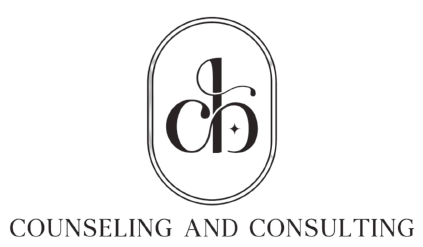Mental Health Blog

Why Is Accepting Compliments So Hard?
Why is it easier to believe our worst thoughts about ourselves than to accept a simple compliment?
Compliments are often seen as small, fleeting moments of kindness, but for many people, they can feel like monumental challenges. If you’ve ever found yourself deflecting, downplaying, or outright rejecting a compliment, you’re not alone. The act of accepting a compliment should, in theory, feel good—but for many young adults and adults, it stirs up discomfort, self-doubt, and even anxiety. Let’s dive into why this happens, unpack the psychological layers behind it, and explore how to embrace compliments more authentically.

1. The Role of Self-Perception
At the core of struggling with compliments is often a disconnect between how others perceive us and how we see ourselves. Compliments challenge our internal narrative, especially if it leans toward self-criticism or insecurity. For instance, if someone says, “You’re so talented,” but your inner voice constantly questions your abilities, the compliment feels incongruent. This misalignment can make you question the compliment’s validity or feel unworthy of it altogether.
📌 Pause & Reflect:
Ask yourself, What part of me struggles to believe this compliment could be true? This can reveal deeper insecurities or outdated beliefs about yourself that need unpacking.
2. Cultural and Social Conditioning
Cultural and societal norms often play a significant role in how we respond to compliments. Many cultures emphasize humility and discourage overt pride, leading people to feel they must downplay praise to avoid seeming arrogant. This is particularly true in environments where modesty is equated with likability or moral virtue.
For some, the fear of being seen as “full of yourself” creates a reflex to deflect or minimize praise, even when it’s genuine. Social conditioning often teaches us that accepting a compliment wholeheartedly is synonymous with boasting, which can feel socially risky.
📌 Pause & Reflect:
Notice how your upbringing and cultural background influence your reaction to compliments. Do you feel pressure to appear modest? Recognizing these patterns can help you reframe how you approach praise.
3. The Impact of Low Self-Esteem
Low self-esteem is one of the most common reasons people struggle with compliments. When your self-worth is shaky, positive affirmations from others can feel threatening rather than affirming. Compliments may feel like they spotlight you in a way that amplifies internal doubts or insecurities.
For example, if someone compliments your appearance, but you’re grappling with body image issues, the compliment can trigger discomfort or even shame instead of gratitude. Low self-esteem often translates to an inner belief that you are not “enough,” making it hard to accept any acknowledgment of your worth.
📌 Pause & Reflect:
Explore how your self-esteem influences your ability to accept kindness. Journaling about moments when you’ve deflected compliments can offer insight into patterns of self-doubt.
4. Fear of Vulnerability
Accepting a compliment requires vulnerability. In doing so, you acknowledge someone else’s positive perception of you, which can feel exposing. For people who struggle with trust or have experienced criticism in the past, compliments might feel like a setup—an invitation for disappointment or judgment.
This fear often ties back to a defense mechanism. Rejecting a compliment can feel safer than risking the vulnerability of accepting it and having to confront its emotional weight.
📌 Pause & Reflect:
When you deflect a compliment, ask yourself, What am I afraid might happen if I fully accept this? Understanding the fear behind the discomfort can lead to greater self-awareness.
5. Cognitive Dissonance and Impostor Syndrome
Cognitive dissonance occurs when you hold two conflicting beliefs, such as believing, “I’m not smart enough” while hearing someone say, “You’re so intelligent.” Compliments can clash with internalized impostor syndrome, which convinces you that any success or positive attribute is due to luck, external factors, or deception.
When you feel like a fraud in your achievements, compliments highlighting your skills or accomplishments can feel deeply uncomfortable. This dissonance creates an internal struggle: Do you accept the compliment and risk confronting your self-doubt, or do you reject it to maintain the illusion of control over your insecurities?
📌 Pause & Reflect:
Consider how impostor syndrome influences your reaction to compliments. Try countering critical thoughts with affirmations like, What if they see something in me that I’ve overlooked?
6. The Desire to Control Perception
Compliments often leave us with little control over how others see us. When someone praises you, they are asserting a positive belief about who you are, and that can feel unnerving if it doesn’t align with the persona you consciously project.
For example, if you see yourself as “hardworking” but not necessarily “talented,” being called “talented” might disrupt the identity you’ve carefully curated. This dissonance can trigger discomfort, causing you to reject the compliment as a way to maintain your self-concept.
📌 Pause & Reflect:
Ask yourself, Why am I so invested in controlling how others see me? Recognizing the need for control can open the door to more authentic interactions.
7. Practical Steps to Embrace Compliments
If compliments make you uncomfortable, it’s possible to reframe your perspective and practice new ways of responding. Here are a few strategies to try:
✔️ Pause and Breathe: Before reflexively deflecting a compliment, pause and take a breath. This creates space for you to process the praise.
✔️ Simply Say Thank You: A straightforward “thank you” is a powerful way to acknowledge the compliment without overthinking it.
✔️ Reflect on the Compliment Later: Write down compliments you receive and reflect on them in a journal. Consider why the compliment felt difficult to accept and what it reveals about your self-perception.
✔️ Challenge Negative Beliefs: If a compliment clashes with your internal narrative, ask yourself, What if this person sees something in me that I struggle to see in myself?
✔️ Practice Giving Compliments: Learning to give compliments freely can also make it easier to accept them. Notice how it feels to genuinely affirm others and how they respond.
Final Thoughts
Struggling to accept compliments isn’t a sign of weakness or failure—it’s a reflection of the complex interplay between self-perception, societal norms, and psychological defenses. By exploring the deeper reasons behind this discomfort, you can begin to rewrite your narrative and embrace compliments as opportunities for growth and connection.
Remember: every compliment you receive is a moment of recognition, a small reminder that others see value in you—even when it’s hard to see it yourself. The journey to accepting compliments is ultimately a journey toward self-acceptance, one small step at a time.
Disclaimer: The content in our blogs are for informational purposes only and should not be considered a substitute for professional mental health advice, diagnosis, or treatment. Always consult with a qualified mental health professional for personalized guidance and care. In case of a mental health crisis or emergency, please call emergency services immediately.

© 2023 All Rights Reserved
We are offering services online via Telehealth
(614) 957-3321
Hours: Monday-Friday 9:00am-6:00pm

© 2023 All Rights Reserved

